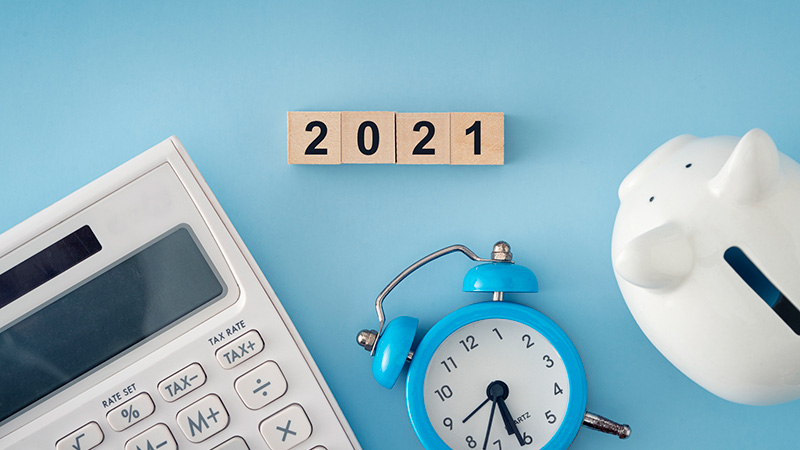
This content is for information and inspiration purposes only. It should not be taken as financial or investment advice. To receive personalised, regulated financial advice please consult us here at Elmfield Financial Planning in Padiham, Burnley, Lancashire.
Taxes have the potential to significantly erode your wealth and investment returns if you do not manage them effectively. We all have a duty to contribute to society, but nobody’s family or own finances should suffer from needless tax erosion. In this article, our financial planning team here at Elmfield Financial Planning offers an overview of how tax planning works in 2021-22, why it matters and some ideas about how to do it well. We hope you find this content useful. If you’d like to speak to an independent financial adviser then you can reach us via:
T: 01282 772938
An example: pensions
Retirement is a good area to illustrate the importance of personal tax planning. Suppose you want to have a “luxurious retirement” one day in the future – perhaps bringing in an income of £50,000 each year. Assuming your state pension contributes to some of this (e.g. £9,000 or so), you still require a large amount of retirement savings to provide this level of income over many decades – assuming you live three or four more decades after retiring.
In 2021-22, however, there is a cap on how much you can save into your pension(s) in total – known as the lifetime allowance. If you exceed this £1,073,100 threshold, then any lump sum you take over this amount is subject to a 55% tax (25% if taken as an income). As such, to help ensure you attain the retirement income level you want – without triggering this needless charge – you could explore building savings not only within your pension(s), but also within other tools such as an ISA (which is not subject to an overall cap).
Areas of tax planning
Arranging your taxes effectively does not only concern how you save/invest for retirement. It affects almost every area of your financial life including your salary, any capital gains made from investments, dividends from company shares, interest on cash savings and inheritance tax on your estate (which can include insurance policy payouts).
Indeed, the decisions you make about one of these areas typically have a big impact on how the others are treated, for tax purposes; potentially reducing or increasing your overall wealth and/or income. For instance, suppose a company director decides she wants to reduce the overall tax she pays on her monthly income. As such, she reduces her salary (which is subject to income tax) and increases how much she gets in dividends from the company profits – because tax on dividends is lower than income tax brackets. However, doing so could result in less attractive mortgage offers should she then decide to approach lenders to buy a property. This is because many banks do not perceive dividends as a stable source of income.
Ideas to plan tax-efficiently
Since each person’s financial affairs and goals are different, tax-efficient financial planning will look different on a case-by-case basis. This is why it is difficult to offer recommendations which everyone can use to legitimately reduce their tax liability. However, there are a range of options which you may wish to discuss with a financial adviser. These include:
- Making use of pensions. In 2021-22, you can contribute up to £40,000 into your pension (or up to 100% of your earnings – whichever is higher) and the UK government will “top up” these at your rate of income tax. As such, if you are a Higher Rate taxpayer on 40% income tax, then you may wish to put more disposable income into your pension if you can afford it. Not only can this immediately reduce your tax exposure but also increase your retirement income in the future.
- Use allowances strategically. Each financial year (April-April) your tax-free allowances refresh. For example, your Capital Gains Tax (CGT) allowance is £12,300. By spreading your sales of gains in, say, a general investment account over multiple financial years, therefore, you could reduce your tax liability by keeping within this threshold.
- Consider asset transfers. If you are married or in a civil partnership then you can transfer ownership of certain assets to your spouse to utilise their unused allowances. For CGT, as an example, this could effectively double your household’s CGT allowance to £24,000 each tax year.
- Don’t forget your ISA. in 2021-22 you are allowed to put up to £20,000 of savings and/or investments into your ISA(s). Any interest, capital gains or dividends earned within this “wrapper” will be free from tax. Here, it could make sense to structure your investments so they make maximum use of both your yearly tax allowances (e.g. for capital gains) as well as your ISA. For example, stocks & shares investments could be sold within an ISA, which could also allow you to sell a Buy To Let property in the same tax year – which would use your £12,300 CGT allowance.
Invitation
If you are interested in starting a conversation about your own financial plan or investments, then we’d love to hear from you. Please contact us to arrange a free, no-commitment consultation with a member of our team here at Elmfield Financial Planning in Padiham, Burnley, Lancashire.
Reach us via:
T: 01282 772938

